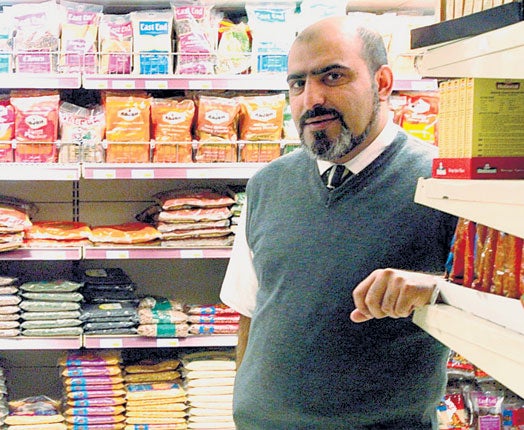MPs battle to save the nation's high streets

A last-minute attempt to persuade the Government to allow local authorities to step in to save independent shops disappearing from the high street will be made in the House of Lords this week.
Amid mounting concern about the plight of small retailers in the face of spreading supermarket chains, Labour and Liberal Democrat MPs have drafted amendments to the Localism Bill designed to safeguard the character of neighbourhood shopping streets.
Under the Labour proposals, which are backed by the Association of Convenience Stores, councils will be required to put in place a retail-diversity scheme based on the wishes of the local community. Similar proposals by the Liberal Democrats will also seek to tilt the balance of power back towards local authorities, which are often unable to oppose the arrival of a large supermarket.
In May, the Government announced it was setting up an independent inquiry on the issue under Mary Portas, a retail consultant who presents Mary Queen of Shops on BBC2. It is not expected to report back until November. Labour said it hoped to put the safeguarding of traditional shopping areas on a statutory basis before then. Jack Dromey, shadow minister for Communities and Local Government, said local councils should have a duty to help popular small shops survive.
Mr Dromey said: "Unless we have retail diversity and councils charged with ensuring the interests of small retailers are paramount, then what you will have is that dreadful combination of the continued decline of the high street all over Britain and its Tesco-isation, particularly of the South of England."
Opposition to the growth of supermarkets has recently resulted in rioting in Bristol and high-profile challenges to the arrival of big stores in places such as Cambridge. Meanwhile, the number of vacant shops has tripled to 14 per cent since 2007.
The Liberal Democrat Lord Greaves said it was important not just to save town centres, but district shopping streets. "This is an issue that people really care about," Lord Greaves said. "The amendment we are putting down would put the emphasis on the character of a local development."
In April, a report by ResPublica, a think-tank close to David Cameron, called for a levy to be imposed on the big supermarkets which could be redistributed to small shopkeepers in the form of rate relief.
Greg Clark, the Planning minister, said last month that the Government was considering cutting red tape to encourage "meanwhile uses" of empty shops to breathe new life into declining high streets and stimulate entrepreneurship.
According to figures from the British Independent Retailers Association, in 2009 there was a net loss of 5,204 shops. The following year this figure dropped to 2,298 while 298 disappeared in the first five months of 2011 – mostly due to rising rent.
Case study: Abdul Arain: Cambridge shopkeeper leading the fight against the 'Big Four'
Campaigners in Cambridge say their city is in danger of becoming another clone town. Opposition is mounting against plans to open a Sainsbury's supermarket in a former snooker hall not far from a new Tesco in Mill Road.
To draw attention of the issue, a local shopkeeper Abdul Arain is standing against Lord Sainsbury to succeed the Duke of Edinburgh as chancellor of Cambridge University.
Mr Arain, who owns the Al-Amin grocery store in Mill Road, said the university should be in the "vanguard" of the local community. He said: "Local shops, the butcher, the baker, the newsagent, are reduced to one multiples outlet. There's a compounding effect. People who would normally invest in that area and take pride in that area, are gone. The consequences are antisocial behaviour, an area deprived of its soul."
He said the "Big Four" – Asda, Sainsbury's, Tesco and Morrisons – should not be allowed to sweep aside local opposition.
His campaign follows a 5,000-signature petition opposing Tesco's 14th outlet in Cambridge, in which 1,000 people objected to the planning application.
Join our commenting forum
Join thought-provoking conversations, follow other Independent readers and see their replies
Comments
Bookmark popover
Removed from bookmarks